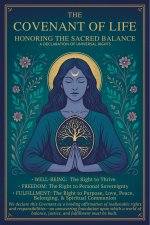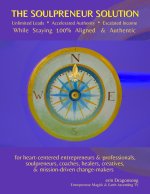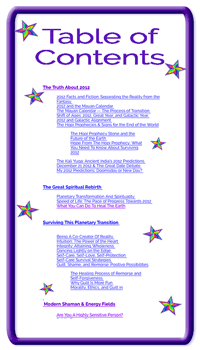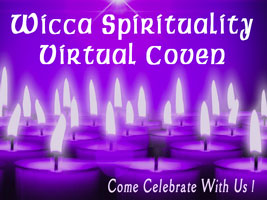Wiccan Gods and Goddesses
from Around the World

|
|
|
|
|
How Can We Get Away With That?
There are three good reasons.Lacking Facts
The first reason goes back to Wiccan history. That is, that we don't really have a history. Although Wicca is descended from pre-Christian pagan religions, there is no exact lineage from Wicca to the nature worshippers in pre-Christian times. (Not that it matters how far back a religion dates. Every millennia-old spiritual tradition once was a new-fangled upstart. And it's inappropriate to judge spiritual matters on material fantasies like "time.") Even if we know something of the ancients' Goddesses and their Gods and their festivals, we can do no more than guess about what those deities and rituals meant to them. The fabric of their lives and their most basic assumptions were so different from ours that even if we could understand the old ways, it would have little relevance for our spiritual practice today.Different Context
Plus, since most of us now live in an urban-centered society, few of us have the connection to the Earth and the cycles and elements that our foremothers and forefathers had. That makes it more difficult for us to directly perceive the Pagan Gods and Goddesses as our ancestors would have.Lack of Unification
Finally, it seems that each village had their own versions of a Deity, specific to their region. The Gods and Goddesses couldn't be the same everywhere, since each area had their own issues and environment to deal with, and information wasn't as mobile as it is today — there was no single source to crystallise around.The Ancient Gods and Goddesses?
The names and characteristics of the ancient Pagan Gods and Goddesses can be found in only a few documented sources. The Celtic and the Norse Goddesses and Gods were mentioned in some records, taken largely from Christian scholars. How accurate the portrayals are, we have no way of knowing. But there is plenty of cause for uncertainty, considering that it was conquerors and competing religions that documented them. How accurately would a Christian monk be able to explain a Wiccan God or Goddess? His whole perception would be altered by his Christian filters. It would be wise to take such information with a great deal of salt — like a whole salt-lick!Starting Anew In A Multicultural World
So Wicca starts anew... grounded in ancient nature religions but not bound by them. Modern Wicca worships a new blend of Deities. With easy access to the cultures and beliefs of people around the world, it becomes easy to see that all religions have similar deities, by different names. And we adapt it all to fit our modern perspectives. This adaptability is what makes Wicca a living spiritual practice, instead of a fossilised religion.Are New Gods And Goddesses Valid?
Wicca today is not a nature religion to the degree it once was. It has become more universal and of higher frequency than patriotic loyalty to the local manifestations of Divinity. We could accurately consider modern Wicca as more a reincarnation of nature-worshipping religions and Goddess spirituality. Nothing dies forever!How Are Wiccan Gods and Goddesses Chosen?
When Wiccans or Pagans need a Goddess who represents compassion, say, there are already a few out there, with built-in...- attributes,
- icons,
- history,
- mythology, and
- the Power of millennia of devotion.
Stealing from Other Cultures?
When we adopt anything from cultures that have been dominated and decimated by Western imperialism, we run the risk of cultural appropriation. Pagan adoption of the First Nations' Deities, for instance, is sometimes felt to be stealing on yet-another level... stealing the only thing the First Nations can still call their own: their culture. Personally, I feel that when we come as humble supplicants to study the Native Americans' ways, we do them honour... and erase a fraction of our ancestors' crimes. But I respect the very-real feeling of violation that abused cultures may experience by this practice. As well, far too many whites then take that training and set up spiritual shop for themselves. That's when it goes beyond respect, and becomes cultural appropriation. Appropriating someone's culture involves a power dynamic. It's something that happens between dominating and dominated cultures. It is another level of theft and violation. This is something that we as Pagans must be aware of and responsive to. Many Pagans resonate strongly to First Nations' spirituality. We share much of the same basic philosophy, after all. But out of respect for the damage the First Nations peoples have suffered in centuries of colonization, many Wiccans are reluctant to adopt Native American Goddesses and Gods. Those who do worship Spider Woman or the Great Corn Mother, for example, must be careful to do so with utmost respect. And this respect must extend to the First Nations peoples as well, manifesting as action to support them.Adopting Other Mothers and Fathers
Whether we resonate with a panorama of Deities from many cultures or follow the inherited Deities of our forebears, we are in essence adopting the mothers and fathers of other people. And there is naturally some evolution, some change of the Goddess' and God's nature, in translation to a new culture. This is where intention is critical. As long as your intention is to respect the Deity, and care is taken to understand Her cultural meaning, little harm can be done. They are all One Goddess, after all. In addition, as spiritually-educated people, we can see a deeper reality. We can observe how all the Deities have changed over centuries. This kind of evolution is as inevitable for the Deities as for mortals. The Triple Goddess who represented the multi-faceted feminine aspect of the Divine, has been sundered into three different deities. Certain Goddesses were kept and honoured — those that fit or could be made to serve the new dominating regime. Those that were challenging to the new male power structure were denied or demonised, like Hecate the Crone. (There's no room for powerful old women in the power-hungry old patriarchal paradigm!)With Brightest Blessings,
erin Dragonsong

Return from
NAMEOFTHISARTICLE_HEADLINE
to
ARTICLENAMEDINWORDDOC










